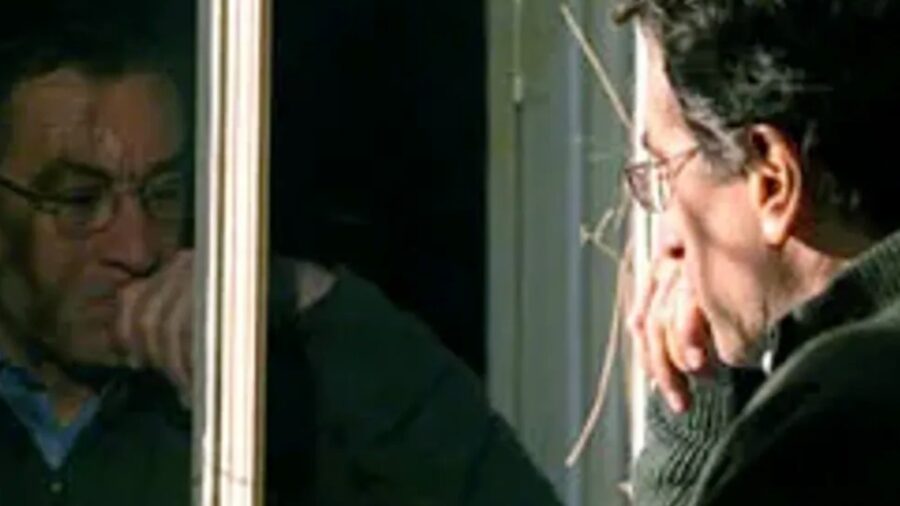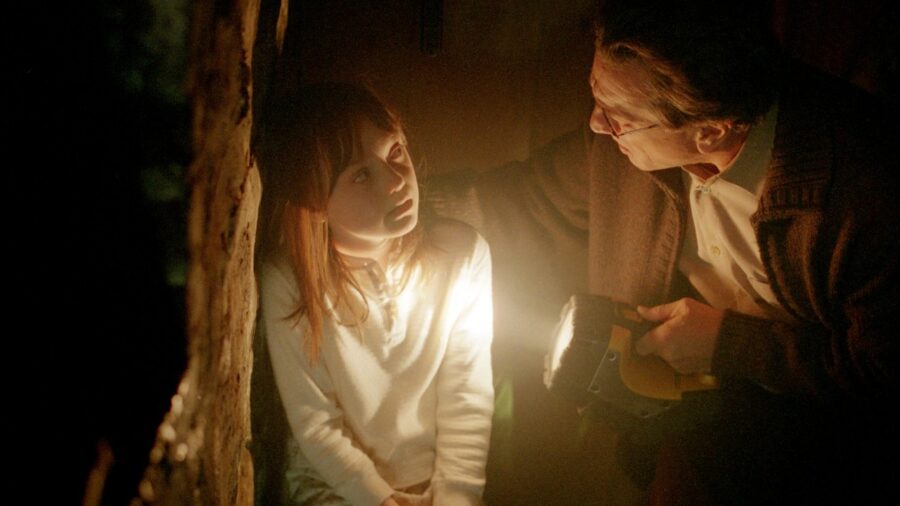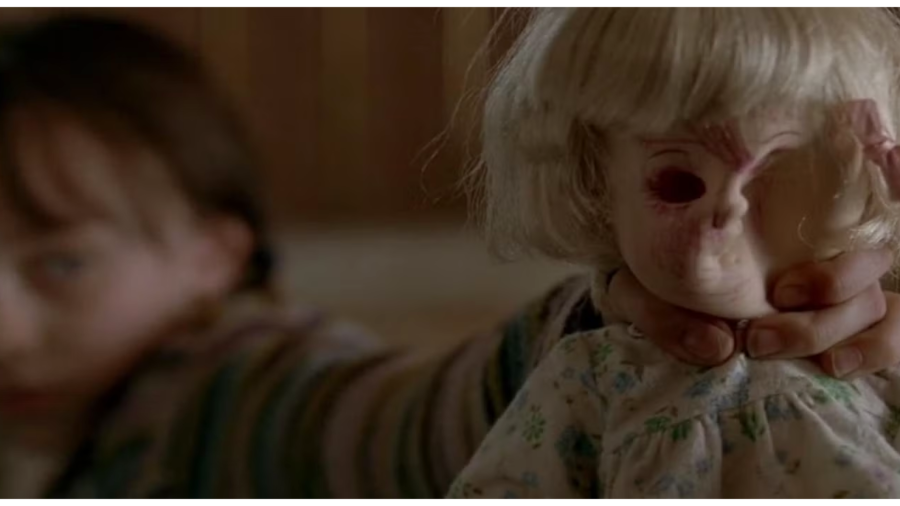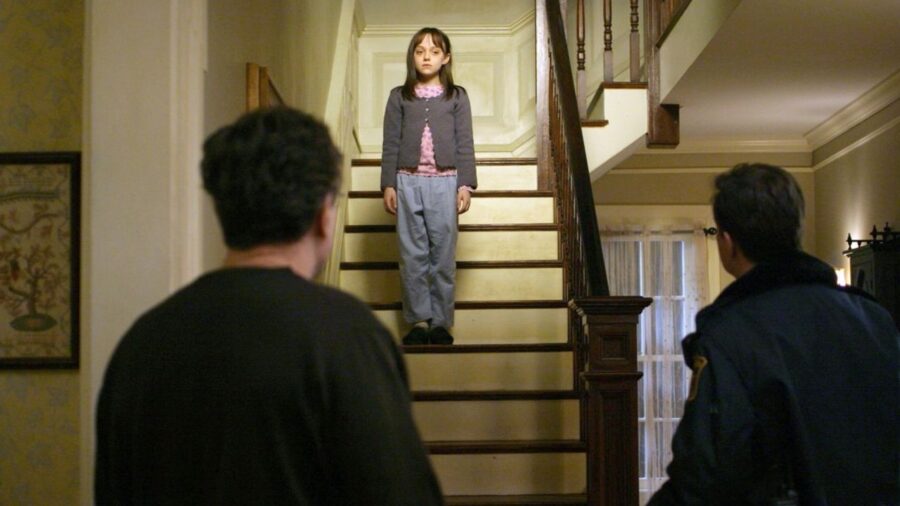Mind-Bending Robert De Niro Psychological Horror Missing On Streaming
By Robert Scucci | Published

Sometimes, a psychological horror film has the perfect cast, but not the best screenplay in place to make the most of their talent. 2005’s Hide and Seek falls into this unfortunate category, as Robert De Niro and Dakota Fanning truly bring their A-game through their tense performances fraught with frenetic and paranoid energy in the face of some unknown source of terror. I can’t even fault Hide and Seek for being poorly produced despite the film’s alleged budgetary restrictions ($25 million is nothing to scoff at) because the cinematography is top-notch, and effectively ramps up the suspense before things start to fall apart in the third act.
I’m reminded of an industry phrase I learned while working with various audio engineers on musical projects over the years in regard to high-level production and talent when it’s applied to mediocre songwriting that I think applies to Hide and Seek. That is, you can polish a turd all you want, but it’s still a piece of crap.
But is Hide and Seek really all that bad? Or is it just contrived and generic – which isn’t necessarily a scathing indictment in the right context – to the point where most seasoned horror fans think it’s a waste of time? The 13 percent critical score on Rotten Tomatoes is telling, but what’s more telling is the 50 percent score on the Popcornmeter, suggesting that Hide and Seek is a somewhat effective psychological thriller that’s orders of magnitude better than what the critics would lead you to believe.
If I had to weigh in, Hide and Seek is contrived and generic, but it’s a solid point of entry for the casual horror fan.
Watch Out For Charlie

Hide and Seek introduces us to Dr. David Callaway (Robert De Niro), a psychologist who needs a fresh start with his daughter, Emily (Dakota Fanning), after his wife, Allison’s (Amy Irving), suicide. Moving to upstate New York, David unpacks his belongings in his study, and begins to piece his life back together. Spending his evenings listening to music and writing in his journal so he could make sense of the recent tragedy he and Emily endured, it seems like David is doing his very best to let his daughter have a normal life after her mother’s horrific passing.
Aside from David’s recurring nightmare involving the New Year’s Eve party when he last saw Alison alive, he seems put together, but quickly becomes unsettled by Emily’s new imaginary friend, “Charlie.” Being a psychologist, David has reason to believe that Charlie is a coping mechanism created by Emily so she could process her grief. David’s hypothesis seems valid until acts of violence – like the family cat getting murdered even though it’s just David and Emily living alone – occur, which Emily always blames on Charlie.
As the film’s title suggests, Emily loves playing hide and seek with Charlie whenever David is in his study, and the outcome of this seemingly innocent game always ends in violence. After befriending a local woman named Elizabeth (Elisabeth Shue), matters escalate to the point of no return when Emily (and Charlie) invite her to play their twisted version of the game with them. David, who’s working through his own grief, does the fatherly thing by trying to help Emily work through her supposed delusions while becoming increasingly paranoid of the ever-elusive Charlie, who’s turning his life upside down.
Adequately Acted, But Fails To Stick The Landing

Remember when I said that Hide and Seek is contrived and generic, but carried well by its talent? I stand by my claim because Robert De Niro and Dakota Fanning convincingly work through the premise, even if the screenplay leads their characters to a painfully obvious conclusion and revelation. The “twist” ending aspires to be The Sixth Sense, but we end up getting a derivative reveal that will leave you disappointed if you’re a frequent flyer on Psychological Horror Airlines.
Most notably, Dakota Fanning has a stellar performance, which is made all the more impressive when you consider that she was only 11 years old at the time of Hide and Seek’s release. Portraying a little girl who’s tormented by a violent imaginary friend (or some unknown outsider pretending to be imaginary) is no easy feat, and she convincingly conveys her sense of fear and confusion to the audience through her innocent exchanges with her concerned father whenever Charlie shows up to make matters worse. You’ll find yourself questioning whether she’s a manipulative little girl trying to pull one over on her dad, or truly being tormented by Charlie, and the answer may surprise you if you let your guard down.
I also can’t necessarily place fault on De Niro and Fanning for doing their best with what they were given, because the father/daughter dynamic in Hide and Seek seems to be coming from a genuine place.
Watching Hide And Seek


GFR SCORE
Is Hide and Seek deserving of a 13 percent critical score on Rotten Tomatoes? Not by a longshot. If anything, I’d consider this film to be a mid-tier and entry-level psychological horror flick that has its rightful place in the genre for casual viewers who haven’t yet become jaded by generic genre conventions.
As of this writing Hide and Seek isn’t available on streaming, which is a shame because it’s a perfect low-stakes film with some brilliantly shot sequences that are truly unsettling. However, you can check the title out on-demand through Google Play Movies, Apple TV+, Fandango at Home, and Amazon Prime Video.













Login with Google